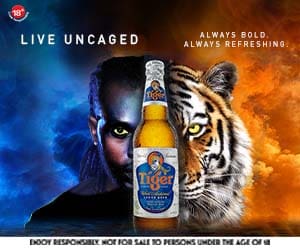A dead person is dead, for real. Once pronounced dead, the economic importance of the dead diminishes greatly.
It doesn’t matter if the dead is Queen Elizabeth II or, Herbert Wigwe, or the Enugu woman who took her three children to a police station in Ogui and ran into an oncoming vehicle in a suicidal mission.
Whether the final rites of the person is a festival or a minor gathering, the final destination is the same – deep in the ground somewhere. Not even those Indians who cremate their bodies enjoy a better fate, nor those Tibetans who scatter the bodies of their loved ones on a mountaintop to decompose or leave for scavenging animals like vultures to eat. A dead person is dead, for real.
The dead are useful for just three reasons. One is the body as manure for plants whose roots are lucky to reach the burial spot. The second is for the body as food for organisms in the soil who will feast on it, oblivious of the greatness of the dead when they were alive. The third usefulness of any dead person is how those of us who are left, just like ants, plants, microbes, and roots, feed on the body of stories the dead left behind.
Sometimes, people die, their stories get lost, and so will the lessons from their lives. When we preserve the stories in the memories of those left behind, the lessons in those stories enrich us all.
People have said a lot about the stories of Herbert Wigwe that have emerged following the California helicopter accident that took his life and that of his wife and son. Some were fascinated by his relationship with his Redeemed Christian Church of God parish and how the pastor’s wife celebrated her 60th birthday a few days after Wigwe’s passing. Some were mesmerized by how he rose to become the CEO of Access Bank and one of the titans of Nigeria’s business elite. For others, it was the disgusting performance of the Nigerian senate president, Godswill Akpabio, at Wigwe’s funeral that made them ponder.
For this piece, I want to emphasize the story of Wigwe and Sanusi Lamido, the former CBN governor and Emir of Kano. In his tribute to Wigwe, Sanusi told how Nwigwe came to his rescue when Gov. Abdullahi Ganduje dethroned him as the Emir of Kano. According to Sanusi, Ganduje had planned to send him to exile for years. But his friend, Wigwe, picked him and his family up in a private jet and brought him to Lagos. Wigwe lodged Samusi and his family in a hotel and later rented a prepaid apartment for them.
As he told the story, Sanusi wept. He was not just weeping because Wigwe saved him from shame and exile. His tears streamed from many years of interactions and deals that culminated into a relationship in which, without prompt, Wigwe knew when his friend needed help and stepped in most appropriately.
Poet Rod McKuen once wrote, “Friendship consists of being a friend, not having a friend. And so it is that friendship means loving rather than being loved. The gifts that one receives for giving are so immeasurable that it is almost an injustice to accept them.”
I once conceived a teamwork exercise.
I asked members of my team to bring out their phones.
I asked everyone how many phone numbers they stored on their phones. They announced it.
I asked them how many family members were there. They reported.
I asked them the last time they spoke to each family member. Some could not remember.
I asked them how many primary school classmates were on the phones and the last time they spoke to them.
I asked about their secondary school classmates and the last time they spoke to them.
At that point, some of them were embarrassed. Some had not spoken to their parents for months.
Some did not have one primary school classmate’s number on their phones.
It was an embarrassment for some.
Right there, I told them to call somebody who would be most surprised to receive a phone call from them.
I watched their faces as they made the call.
In the end, I asked them who they called, what they discussed, and how it made them feel.
They still talk about this experiment to this day.
The experiment’s conclusion is found in Ubuntu philosophy, “We are because you are.”
Even Isaac Newton captured it when he said: “If I have seen further than others, it is by standing upon the shoulders of giants.”
You need to stand on the shoulders of giants to see further. And you just don’t meet anyone, talk less of a giant, and climb upon their shoulders. You need to establish a relationship with them before they allow you to climb up.
“The peace that passes all understanding,” mentioned in Philippians 4.7, will elude anyone who can not or does not maintain relationships.
And like Charity, maintaining healthy relationships starts from home. If you can not have it with the people closest to you, chances are that you do not have it with people you meet in the broader world.
Researchers have proven that loneliness kills more than cancer. More importantly, those who are lonely, those who have 10,001 Facebook friends but live in social isolation, have a 32% higher risk of dying early from virtually any cause than those who socially integrate with others. And it is not just physical death, but emotional and psychological death. It is the kind of death where someone is alive, but the quality of life in them is miserable and undesirable.
Once we die, everything that we have becomes irrelevant. The moment we are pronounced dead, our cars, gold, mansions, bank accounts, juju, and those pricy reconstructed butts, become immaterial. What will take us on that long journey through space, time, and immortality is what we give. Have you given enough to take you through that journey to that great beyond? Time is ticking!
Are you happy today? Are you proud of the life you are living? If today is your last day, will you say you lived a worthwhile life? What impact did you have on people around you? How will they remember you? Will they talk about you the way Sanusi talked about Wigwe?
Do you care about any of these things? A dead person is dead, for real.
Rudolf Ogoo Okonkwo teaches Post-Colonial African History, Afrodiasporan Literature, and African Foketales at the School of Visual Arts in New York City. He is also the host of Dr. Damages Show. His books include “This American Life Sef” and “Children of a Retired God,” among others. His upcoming book is called “Why I’m Disappointed in Jesus.”












